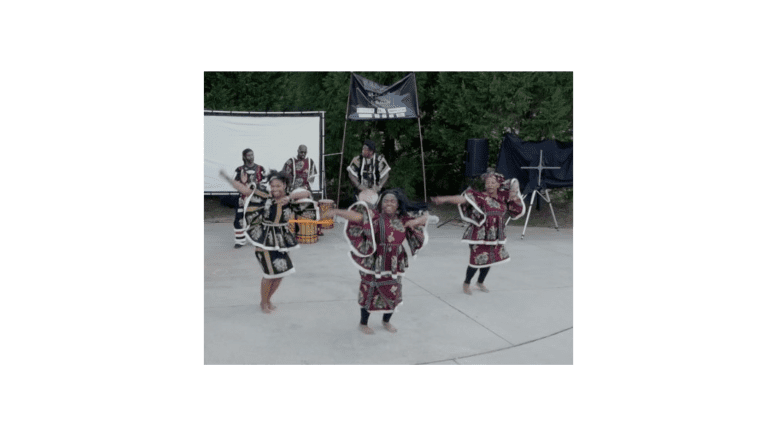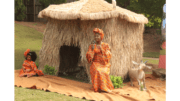By Arielle Robinson
When European slave traders kidnapped Africans from the western and central portions of the African continent during the Transatlantic slave trade, not only were people kidnapped, entire cultures were forcibly ripped away from their origins.
The Igbo people, the Wolof people, the Mandinka people, and many other ethnic groups in Africa through slavery became Black, and Black came to mean slave.
Slave traders and owners forced Africans to take their owners’ names and cast indigenous African traditions as immoral. Slave owners actively tried to suppress the cultural practices of the many African nations brought to the Americas.
Despite attempts of suppression, slave owners ultimately failed at completely erasing the cultural traditions of Africans, and some of those same traditions are very much alive among people of African descent in the Americas today.
Pat Snipes, the founder of the Before Slavery museum and Vibrant Health Association, says that many African-Americans today are unaware of their specific cultural ties to West Africa.
She hopes this will change when the Before Slavery museum arrives in the metro Atlanta area in the spring of 2023. It will be located in Cobb County near The Battery and Truist Park.
Before the museum opens, though, the Before Slavery museum will host the Sankofa Festival on Sunday, Sep. 25, from 2-6 p.m. at Taylor-Brawner Park in Smyrna.
The festival will go toward fundraising and building awareness for the museum. It will also have a preview of the museum.
KISS104.1 FM “Good Morning Gospel” host Twanda Black will MC the festival and Dr. Ameena Ali, who has acted as a special envoy to UN Women Gambia will speak.
Snipes said Ali is aware of her West African cultural heritage through passed down oral tradition and can directly trace back to where her ancestors are from, which is rare for African-Americans today without a DNA test.
DJ Samuel Davis, Milkshake Mayfield and the Mayfield Quartet, and the Uhuru Dancers will be performing music and dance.
Representatives from the Ghanaian and Nigerian embassies will also be present.
Snipes said there will also be a free health screening.
VHA is a non-profit and focuses “on the health of the whole person mentally, spiritually, emotionally, in every way,” Snipes said.
“‘Sankofa’ means retrieving things or value from our knowledge of the past,” Snipes said.
The word is in the Twi language of the Akan people from Ghana.
Snipes said that Black Americans being unaware of their cultural roots impacts health.
Black people “retrieving” these roots can lead to more cultural pride and overall better health, as Black people are made aware that they did in fact have a history before slavery, Snipes said.
“[The VHA does] presentations, exhibits, workshops, and addresses all those various different parts of being human,” Snipes said. “We realized that African-Americans have no idea of their origins or where they came from, and that’s a big need for humans — to have some idea of your identity and your place in the world.
“That’s why the museum came to be. It is called Before Slavery and the Before Slavery museum focuses completely on the history of the people who came to…what is now the United States as enslaved people, so now we can connect with our heritage, our origins, and our history.”
The museum will be interactive and immersive, Snipes said. Visitors can get a sense of what life in Africa before slavery and colonialism occurred.
Snipes said as a visitor walks through the museum they will see recreations of the pre-slavery and pre-colonial environment.
“For instance, one of the early things that you see in the walkthrough is a West African village, which is what we’re going to bring to the festival,” Snipes said.
Narrators will tell stories about life in West Africa, with a special focus on the traditions of the top five ethnic groups that African-Americans come from, among them the Igbo and Mandinka people.
Snipes said the museum has been a decade in the making by an all-volunteer team.
Professors, staff, and students from Hampton University, Spelman College, Georgia Tech, and The Art Institute of Atlanta have been, among other designers and funders have been instrumental in creating the museum.
Cobb EMC is one of the sponsors of the festival.
Snipes has studied Black history in her free time for approximately 35 years. About 12 years ago, she said she had a desire to share the knowledge of Black history she discovered with others in her community.
“That’s how the Before Slavery museum concept came to be,” Snipes said. “I went directly to Ambassador Andrew Young and spoke with him about it. He was enthusiastic and encouraging.”
Visitors can learn about the domesticated animals that existed at the time, the libraries across the region, how history was recorded through song and dance, and the writing systems, among other cultural aspects of life across West Africa at the museum.
“It is commonly said that African-Americans were illiterate in their home countries or their home nations or they only had oral history,” Snipes said. “The fact is that yes, they had oral history, but they maintained history in many different ways.
“You’ll be able to see what the average diet was like, commerce, they had international trade, can you imagine? They had whole systems — they had a monetary system, they had governmental structures — there’s a lot that we don’t generally know, but when you come to the Before Slavery museum, not only will you learn this stuff, but in a fun and entertaining way. It’s not like sitting down and reading a book.”
The Before Slavery website says that the history behind African-Americans’ ancestors have always been present, but not made widely available in a single place.
“This is just my view, but when Africans were brought here as enslaved people they were treated and thought of as livestock, almost. So there was no interest in preserving their culture. Why would the colonists be interested in preserving the culture of the people that they were enslaving? And so as time went on, and things began to progress and African-Americans gained more freedoms in this society, the focus of African-Americans would turn to understanding themselves. But the education system, and so on and so forth don’t focus on that. So you have to find these things independently,” Snipes said.
Snipes said West African cultural influences are alive in people of African descent’s cultures all across the Americas.
“Some of the foods that we consider American, part of the American diet, came from West Africa,” she said. “American music — so much has come from the people of West Africa and been integrated into American life. America would not be what it is today without the influences that came from West Africa.”
To attend the Sankofa Festival and get a preview of the Before Slavery museum there along with the live performances and speakers, one can buy a ticket for $40 at beforeslavery.com.
“We are seeking to help heal an enduring trauma that is not talked about. African-Americans have lost their connection with their common origin and their collective identity, and we are helping people to reestablish that connection,” Snipes said.

Arielle Robinson is a student at Kennesaw State University. She also freelances for the Atlanta-Journal Constitution and is the former president of KSU’s chapter of the Society of Professional Journalists as well as a former CNN intern. She enjoys music, reading, and live shows.


